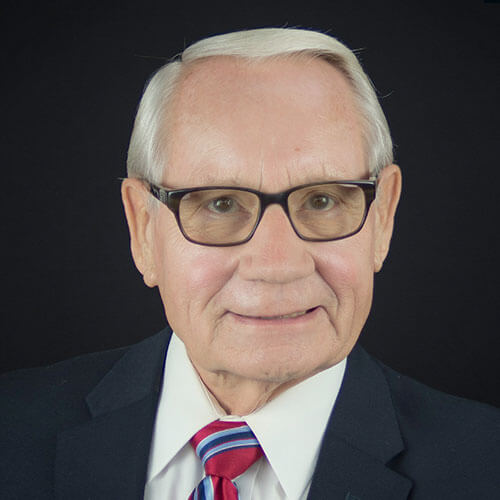Please read Jeremiah 48:1-18, 38-42 again.
THE CHARACTER OF THE PEOPLE
According to verse 29, the heart of their problem was pride; and, as always, other characteristics are closely related:
- Trusting in material possessions, verse 7.
- Self-indulgent ease, verse 11.
- Self-dependent and boastful, verse 14.
- Rebellion against God, verse 26.
All these are sins of the flesh, as well as sins of pride. Adam fell by a sin of the flesh and Satan by a sin of pride.
THE CHARACTERISTICS OF THEIR DESTRUCTION
Verse 4, “Moab is destroyed; her little ones have caused a cry to be heard.”
- Shame and humiliation, verses 13, 26.
- Gloom and grief, verse 33.
- Poverty, verse 36.
- They trusted in their wealth and lost it all.
Let’s look at some of the dangers of wealth; remembering that riches themselves are not evil, but that the love of money is the root of all evil in 1 Timothy 6:10, “For the love of money is the root of all evil: which while some coveted after, they have erred from the faith, and pierced themselves through with many sorrows.”
- The danger of deceitful trust.
Those who trust in their wealth are liable to think it will do more for them than it has the power to do. They find that money will help them out of difficulty and give opportunities.
Soon they look at their wealth as omnipotent, but money will not buy the best of blessings: friends, peace of mind, and spiritual blessings. To trust in riches is to miss them.
- The danger of worldliness.
Rich Moab lives at ease in verse 11. The wealthy are tempted to be satisfied with their possessions.
- The danger of pride.
Rich Moab is proud because they have much, which makes them think they are much. When are we going to learn to value people by their character not by their checkbook? When we stand before God, we are going to be judged by what we are, not by what we have.
- The nature of pride:
Pride develops a passion rising out of its opinion of its own worthiness. There is a difference between pride and vanity in that vanity is eager for the admiration of others, while pride is already inwardly euphoric with the feeling of self-importance, and may be quite indifferent to the opinions of others. Vanity is well pleased by flattery and gifts; while pride values self and makes idols of its own virtues.
- The sinfulness of pride:
Why is it so strongly condemned in the Bible? Because God hates it! Think of what we are compared to God.
Pride is a denial of guilt. We assume that the good we receive from God is deserved, and this proves that we refuse to humble ourselves before a good and holy God.
- The harmful effects of pride:
1. It blinds into danger.
2. It believes that all is well.
Humility sees the stumbling block in the path, but pride holds its head so high as never to see it, and will fall over it:
Proverbs 16:18, “Pride goeth before destruction, and an haughty spirit before a fall.”
- It prevents us from attaining our highest good from God.
- It hinders our good work for God.
THE CAUSE OF THEIR SLACK, V. 10
- Worldliness:
Selfishness is joined together with sacredness. They tried to serve God and mammon at the same time. They tried to do the work of God with one hand while advancing their own cause with the other. As someone said, “No work for God is acceptable which is not done with both hands.”
- Unbelief:
This absolutely paralyzes much of our work.
- Lack of devotion:
The heart is not in it and the service is without sanctification in the heart. The work of God should not be done in a mechanical way. Without love as the main motive, the work is empty of spiritual things.
THEIR CALL TO BIBLICAL SERVICE, V. 47
“The root of nominal Christianity is people have moved away from a gospel of life and replaced it with something else.” Willard said, “If you’re preaching the gospel (only) as forgiveness of sins because Jesus died for you, what you will have is nominal Christians you will have to prod to get going.”
The gospel encourages people to trust Jesus for life in God’s will. Ultimately, each minister should ask, “Is what we do in our local congregation suited to carry out the Great Commission that Jesus gave us?”
We, too, must change!
- From the curse of slothful service—to satisfaction of steadfastness.
- From the obligation of duty—to orderly dependability on God.
We are not our own, we are bought with a price. The Bible says, “Whatsoever thy hand findeth to do, do it with thy might.”
- From worldliness—to heavenly willingness.
2 Corinthians 8:12, “For if there be first a willing mind, it is accepted according to that a man hath, and not according to that he hath not.”
Share this post

Hans Nikoley, GSBC Staff
Bro. Nikoley emigrated from Germany to the United States with his family at age 13. He served full time in the Nevada Air National Guard for six years. At age 32, He was saved, and in 1977, he graduated from Bible College. He pastored for over 31 years, 27 of them at Pomerado Road Baptist Church in Poway, California. Bro. Nikoley has served at Golden State Baptist College in the Bible Department and also as the Student Employment Director since 2007. He and his wife Mary have two children and have been married for 58 years.


Stay connected